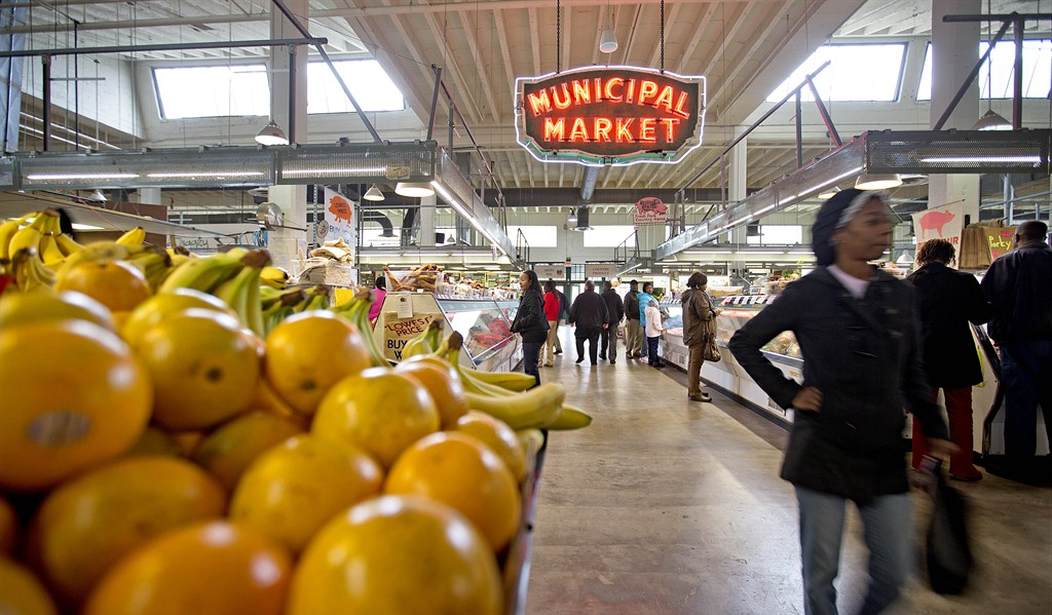The unemployment rate remains high as Congress debates how much money to provide struggling Americans. Immediate economic anxieties should not be ignored; however, no amount of welfare will lift someone out of poverty, let alone into the middle class.
Absent from this discussion is leveraging technology to build an economy that makes it easier to move up the economic ladder. Too often technology is the bogeyman, automating jobs and replacing workers with robots. While there is some truth in these assertions, technology is also assisting the poor by broadening financial access, which is a prerequisite to building wealth. The government and private sector should collaborate on how technology can build an economy that is more inclusive than the antiquated systems we now rely on.
Recently, FinTech startups have been delivering basic financial tools, such as bank accounts, to low-income, high-risk customers who are referred to as the “unbanked.” Overdraft penalties and banking fees prevent this population from having a bank account and access to other financial resources. According to the Federal Reserve, twenty-two percent of American adults (63 million people) are either unbanked or underbanked.
With the proliferation of mobile phones and advances in cloud-based platforms and blockchain technology, it is becoming easier for financial firms to mitigate the risk of low-income Americans and bring them into the banking system. Unfortunately, government regulation is lagging. As one founder and CEO wrote, “new FinTech companies must explain to multiple state and federal regulators how their activities resemble antiquated, legacy architected bank processes and 1960s-era technology infrastructure and how they fit within an outdated regulatory framework.”
Recommended
Updating regulations will allow the private sector to address economic inequities and simultaneously increase economic growth. Assisting the unbanked represents a “trillion-dollar” opportunity for financial services industry. The government should foster conditions that allow companies to use the latest technology to address social-economic problems.
The next step in leveraging technologies that expanded financial access is broader use of digital identification. Digital IDs can be used for financial services, government benefits and verifying workers’ background information.
These programs are underway in Europe and Canada, where governments, banks and other private sector institutions have partnered to bring services more efficiently to their citizens. Banks are often the caretakers of the IDs since regulations around Know Your Customer identification already follow strict requirements regarding security and credibility. As a Mobey Forum report states, “The confidence established in bank credentials also plays well to banks potential future role as guardians of their customers’ digital identities beyond financial services.”
What does ’beyond financial services' mean? Imagine using the same ID to access your bank account as you use to access food stamps and unemployment insurance. Take that one step further and imagine submitting a resume using your digital ID. In addition to the information you have on a paper resume, add a digital tag indicating your dislocated worker status, which qualifies employers that hire you for tax credits. If you do not want the employers to know your dislocated worker status, you choose not to share this information in your digital profile.
Not only will digital IDs streamline paperwork heavy processes, but they will also allow individuals to have more control over their personal data. The economic benefits of digital IDs will be widespread, with one study suggesting they will expand growth by the equivalent of four percent of the GDP.
Building a modern economy that fosters upward mobility requires a regulatory framework that encourages innovation while protecting the most vulnerable participants. Congress and the multitude of government agencies that regulate our life must move beyond the static debates about how much money to give and who to give it to. With the assistance of technology, we can build an economy that looks like the future we dream about while letting old systems and processes fade away.

























Join the conversation as a VIP Member